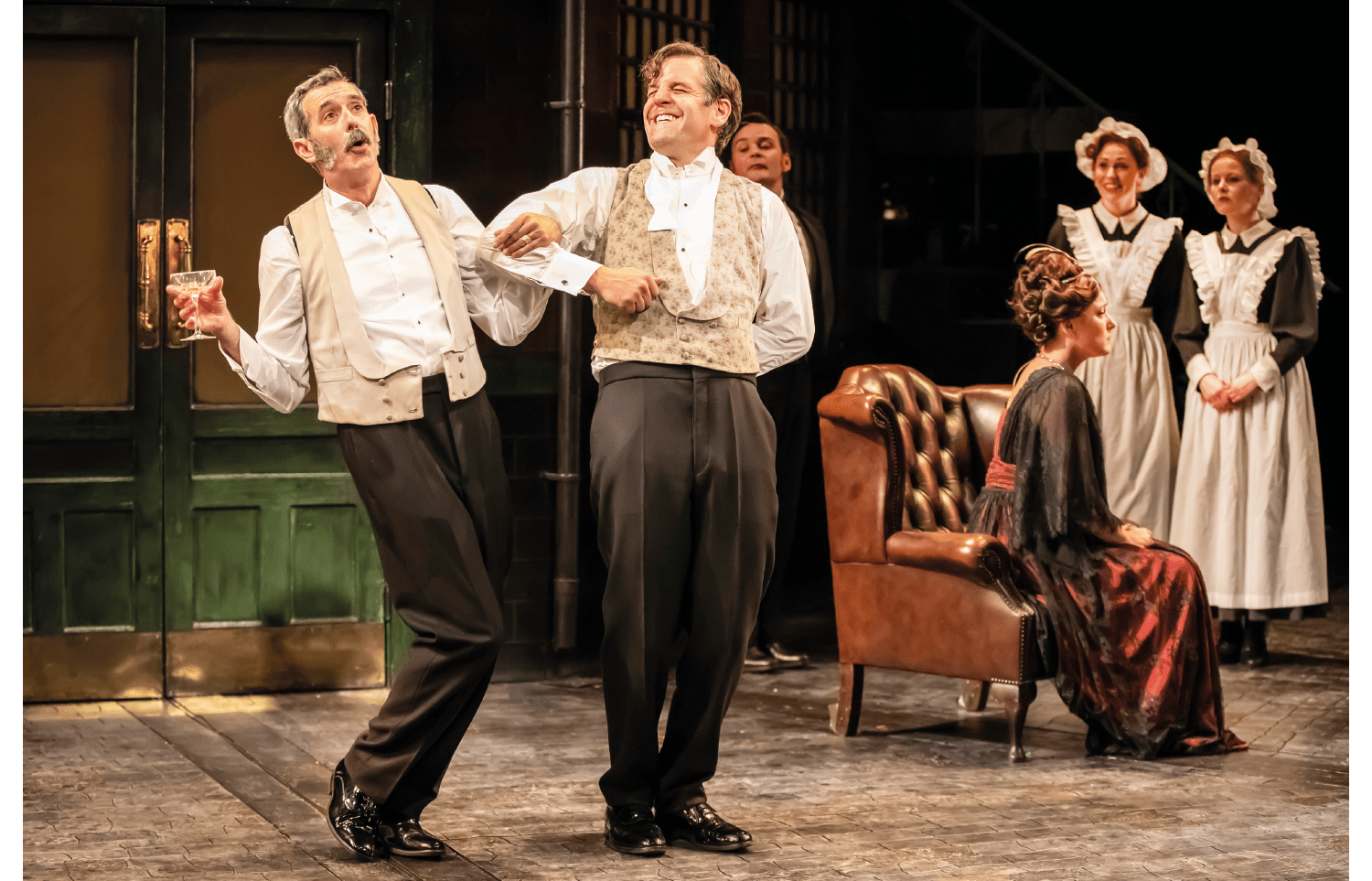If you want to kill a musical, make it into a movie. Cats, Phantom of the Opera, South Pacific… cinema history is littered with dud remakes of world-conquering theatrical sensations. But it’s almost worse when a film musical succeeds on its own terms, and – like a mask eating into the face – proceeds to write over the original show in the collective memory. I once saw a newspaper describe a West End revival of The Sound of Music as a ‘stage version of the classic movie’, which is a bit like describing Pride and Prejudice as a novelisation of the hit BBC drama.
Her coloratura is like sunlight on water. It might be the most exciting thing you’ll hear all summer
The prime exhibit is Lerner and Loewe’s My Fair Lady, which for most of us now means the 1964 film – that gorgeous Technicolor pageant which jettisons the show’s original star, Julie Andrews, in favour of Audrey Hepburn, purely for the visuals. All very nice, but watching it today you do sometimes wonder how this stately three-decker spectacle smashed all records on Broadway and in the West End, and left Rodgers and Hammerstein slack-jawed with admiration.
Opera North’s production of My Fair Lady will give you the answer. You arrive expecting big hats and opulent set pieces. Instead you get a drama that zings off the stage: indelible songs, dialogue that sparks and crackles, and a cast who find meaning in every line. You probably know that George Bernard Shaw’s Pygmalion – the 1913 play upon which the show is based – gives My Fair Lady a headstart for intellectual bite. What you might not expect is to hear GBS’s acid one-liners getting laugh after laugh from an audience primed by the songs to take the whole thing in a spirit of open-hearted delight. It’s a show that blossoms in front of a live audience: no movie can give you that.
So Shaw provides the brains, Lerner and Loewe supply the heart, and the whole thing just fizzes along at a rolling simmer of enjoyment. That’s what My Fair Lady is; that’s what we’ve been missing; and hats off to director James Brining for proving it – and for enabling his cast to inhabit their characters on terms that owe nothing to Harrison, Holloway or Hepburn. John Hopkins is a boyish Higgins; a dandyish, floppy-haired monomaniac with a glint of madness and limbs of rubber, who can – and repeatedly does – find delicious subtexts in Shaw’s most catty asides. You could almost believe (and it’s Lerner’s least convincing alteration to Shaw’s original) that he might be a love-interest for Eliza (Katie Bird).
Bird plays Eliza as a particularly determined flower girl, whose ultimate social triumph is anything but a certainty. One of the best things about Brining’s production is that Eliza doesn’t simply undergo a Cinderella-like transformation. You feel her anxiety, and the edge in her voice keeps breaking through (speaking, not singing, that is: Bird has a dark, clear soprano, and in ‘I Could Have Danced All Night’ she knocked her high notes for six). It must have been tempting to drop a generic feminist re-reading on to My Fair Lady. Brining takes a subtler but more rewarding path, and lets the characters reveal themselves: Higgins’s dapper persona disintegrates as Eliza grows in self-assurance. Meanwhile the ensembles are exuberant, the designs evoke an Edwardian London that owes more to Spy than to Cecil Beaton and the supporting roles – from Richard Mosley-Evans’s bluff Dolittle to Ahmed Hamad’s touchingly clueless Freddy – are engagingly taken. It’s swept along by conductor Oliver Rundell and the Opera North orchestra, unamplified and (apart from some jiggery-pokery where the overture should be) playing what sounded like the original orchestrations. They glowed, but the musicians were sequestered behind a screen and didn’t even get a curtain call. The only sour note in a joyous evening.
It’s a show that blossoms in front of a live audience: no movie can give you that
By comparison, Grange Park Opera’s new staging of Donizetti’s The Daughter of the Regiment feels oddly incomplete. In the credit column, the chorus is splendid, the Tonio (Nico Darmanin) and the Sulpice (Enrico Marabelli) are both fine, likeable singers and Julia Sitkovetsky, as Marie, is a proper star. Her coloratura is like sunlight on water; and when she soars, shining, over the soldiers’ chorus it might be the single most exciting sound you’ll hear all summer.
It’s sung in English without surtitles – a brave choice, presumably intended to enhance the comic give-and-take between audience and cast. But unlike My Fair Lady, this isn’t the kind of comedy that runs on wit and one-liners, so the gain is negligible.
The entire first act is effectively played in front of the curtain (in this case, a large shed wall), so there’s only really room for the cast to stand there and sing, though they occasionally hump some wooden boxes about. Two whole directors are credited (John Doyle and Nikki Woollaston) but the result felt like barely half of an opera.








Comments